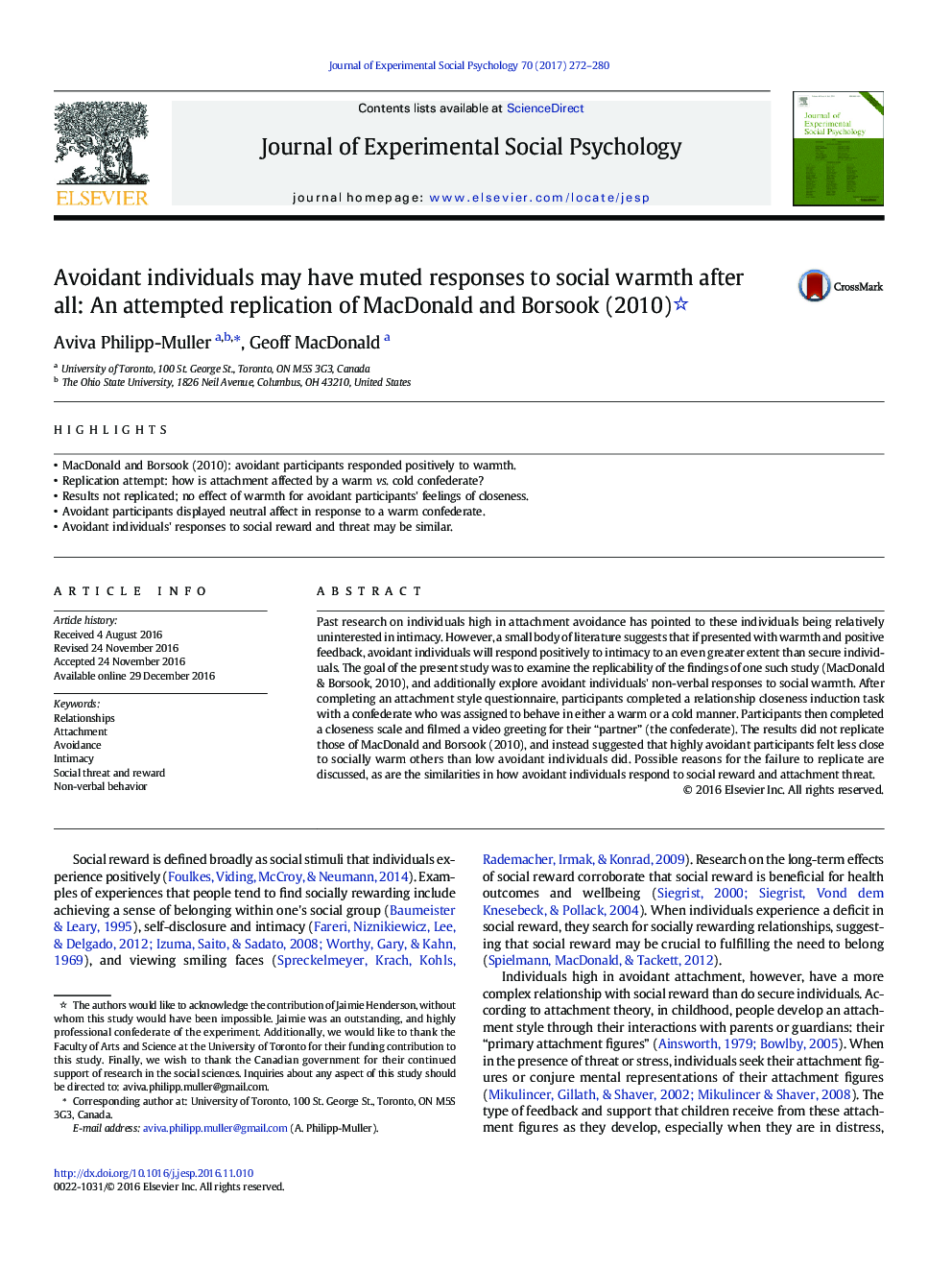| Article ID | Journal | Published Year | Pages | File Type |
|---|---|---|---|---|
| 5045648 | Journal of Experimental Social Psychology | 2017 | 9 Pages |
â¢MacDonald and Borsook (2010): avoidant participants responded positively to warmth.â¢Replication attempt: how is attachment affected by a warm vs. cold confederate?â¢Results not replicated; no effect of warmth for avoidant participants' feelings of closeness.â¢Avoidant participants displayed neutral affect in response to a warm confederate.â¢Avoidant individuals' responses to social reward and threat may be similar.
Past research on individuals high in attachment avoidance has pointed to these individuals being relatively uninterested in intimacy. However, a small body of literature suggests that if presented with warmth and positive feedback, avoidant individuals will respond positively to intimacy to an even greater extent than secure individuals. The goal of the present study was to examine the replicability of the findings of one such study (MacDonald & Borsook, 2010), and additionally explore avoidant individuals' non-verbal responses to social warmth. After completing an attachment style questionnaire, participants completed a relationship closeness induction task with a confederate who was assigned to behave in either a warm or a cold manner. Participants then completed a closeness scale and filmed a video greeting for their “partner” (the confederate). The results did not replicate those of MacDonald and Borsook (2010), and instead suggested that highly avoidant participants felt less close to socially warm others than low avoidant individuals did. Possible reasons for the failure to replicate are discussed, as are the similarities in how avoidant individuals respond to social reward and attachment threat.
